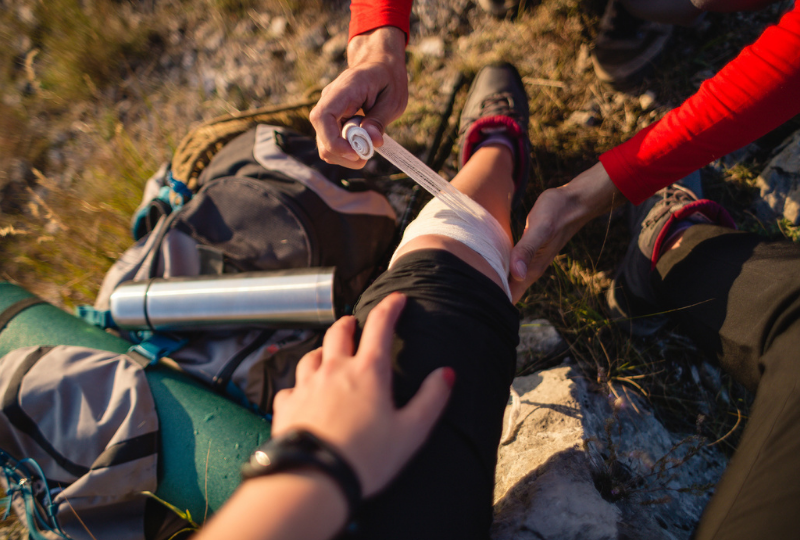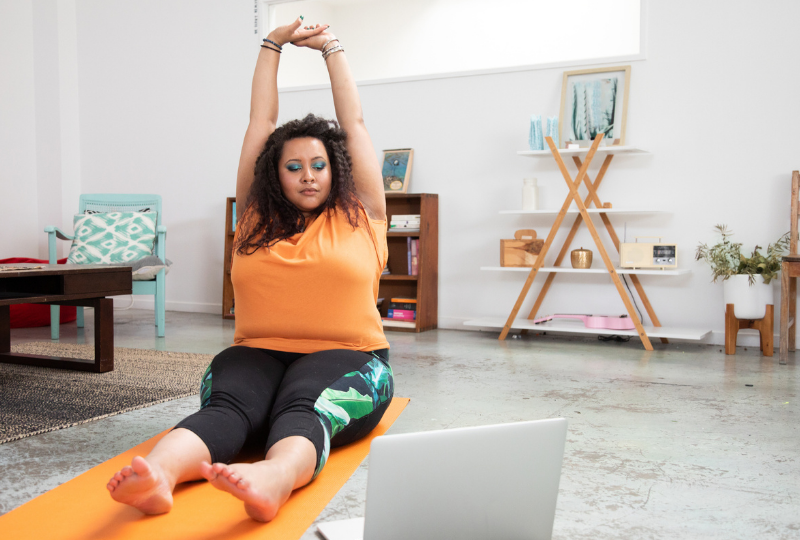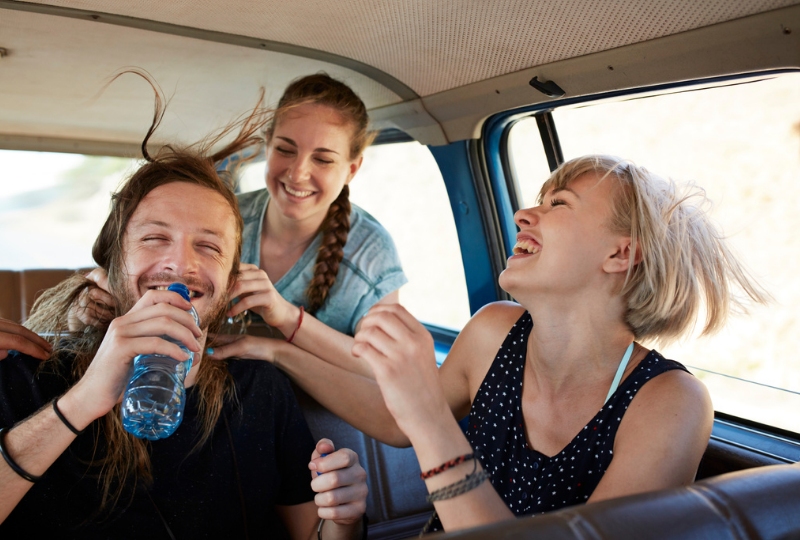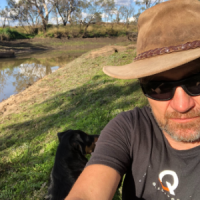
Now that many of us are planning to travel overseas again in the not-too-distant future, these 11 tips to staying healthy while you travel may come in handy.
-
Visit your doctor
-
Check travel health advisories
-
Spend a little on health insurance
-
Pack a first aid kit
-
Just relax
-
Watch what you eat and drink
-
Drink a lot
-
Eat well
-
Avoid mosquito bites
-
Practice safe sex
-
Drive carefully
As we stride bravely towards the end of a global pandemic, we’re a changed species. We’ve become heroes of hygiene. Once we thought nothing of grasping anything in sight. Now placing so much as a finger on some dirty old public door handle or railing has us reaching for our handy wipes. Where once a stranger’s coughing and sneezing drew our sympathetic glances, their uncontained spluttering now alerts us to a walking hazard zone. We live in a world of masks, hand-sanitizer, sparse seating, 1.5 metres of separation, and a collective fear of a compromised immune system. But that’s ok. Health is the new black. If the Covid-19 pandemic has taught us anything, it’s alerted us to the fact that it pays to look after ourselves.
1. Visit your doctor
Having a medical check-up at least six weeks before your trip can save you the cost and stress of needing health care overseas. Give your doctor all the details she or he will need to make the right travel health recommendations for you. Provide them with information such as where you’ll be traveling, how long you’ll be gone, what activities you’ll be doing and your medical history. Be aware of any health problems you may have and discuss with your doctor how you’ll manage them. Find out what medicines you may need and what your health insurance will pay for if you need to see a doctor while you’re in another country. Carry extra prescriptions if need be. If you’re packing medications it pays to check what restrictions other governments place on bringing them in. To be on the safe side, keep your prescriptions handy and your medications in their original containers.
2. Check travel health advisories
Check overseas government travel health advisories for the countries to where you’re planning to travel. This will inform you if there are any health concerns restricting your travel, or alert you and your doctor to important precautions to take such as immunisations and vaccinations. Note that some vaccines won’t give you their fullest protection until six weeks after your shots. The most common recommended shots for traveling in South America and Asia include vaccinations for hepatitis A, hepatitis B, typhoid fever, yellow fever, cholera, and travellers’ diarrhoea.
At the time of writing, exact requirements around Covid-19 vaccinations and travel outside Australia were still being finalised and will be the subject of a future blog.
3. Spend a little on health insurance
It pays to shop around for some good health insurance that covers you for any pre-existing conditions as well as costs for unexpected hospitalisation or emergency dental care you’ll be asked to pay for if you suddenly need them while holidaying in another country. Select insurance that also covers you for evacuation or repatriation costs in the event of a Covid-19 outbreak.
And if all this planning for worst case scenarios gets you down, don’t despair! Knowing that you’re covered for a range of medical emergencies allows you to truly relax and enjoy your holiday. Even if unused, travel health insurance is an investment in your mental health and wellbeing.
4. Pack a first aid kit
This doesn’t have to be flash. Minor mishaps and ailments are a fact of life. So just throw together a few basics like hand sanitizer, antiseptic wipes, band aids, anti-bacterial ointment, an antihistamine, an antacid, anti-diarrhoeal medication, oral rehydration salts and a high quality tensor bandage for twists and sprains. It’s amazing how expensive and/or hard to find these items become when you suddenly need them while travelling.

5. Just relax
On the surface, spending your life lugging your gear across time zones from one unfamiliar place to another seems like the definition of nuttiness. Even for hardened travellers (including travel agents) travelling can be stressful. And as we know, the mental and physical aspects of our wellbeing are closely linked and help us stay healthy. So if you’ve spent the day rushing to meet a check-in time after being lied to by Sat Nav only to find that your passport has mysteriously leaped from your jacket pocket to a compartment of your pack/suitcase you never knew existed, try some of these tried and true relaxation techniques.
- Breathe. Ok, so we’re already doing this without thinking. But that’s precisely the point. By concentrating attention on our breathing our minds are brought into the moment – which is the calmest place to be when our minds are set on wandering off into a future full of dread or a past clogged with bitterness and regret. Breath – become aware of the moment – relax.
- Body scan meditation. This is a good next step once you’ve tuned in to the moment with your breathing and want to relax deeper. Sit comfortably and turn your attention to various parts of your body starting at the feet and working your way up. Spending a couple of minutes on each one, note how each part of your body is feeling. When you identify some part that doesn’t feel great, offer it some kindness. It’s amazing how calm and relaxed you’ll soon begin to feel.
- Yoga and tai chi. If sitting still isn’t your thing, Google any number of yoga or tai chi routines and follow along. Both of these techniques involve a series of moving and stationary poses combined with deep breathing that will improve your flexibility as well as lowering stress and anxiety.

6. Watch what you eat and drink
Gastrointestinal diseases make up 50% of all travel related illnesses but are easily preventable. They’re usually picked up from dodgy food or untreated water and result in diarrhoea, stomach pain, nausea and vomiting. Different parts of the world have different food and drinking water health standards, but it pays to follow these five simple rules depending on where you travel:
- Drink only boiled or bottled water or use water purifiers or tablets. Avoid ice in drinks.
- Don’t buy food from street stalls.
- Avoid raw produce including salads.
- Only eat thick-skinned fruit and veges that you cut/peel yourself: bananas, oranges, mangos etc.
- Make sure your food is cooked thoroughly and eat it while it’s hot.
7. Drink a lot
Party hard by all means -- but what I really mean is, once the horrors have hit and your daily itinerary has you darting about enjoying sightseeing and adventure activities, you’re going to dehydrate faster than normal. It’s amazing how quickly we forget to replace lost bodily fluid when our lives are suddenly packed with action. We often underestimate how important staying hydrated is. Dehydration can lead to heat exhaustion and other serious complications. So drink plenty of (clean) water.

8. Eat well
To keep your body fighting fit and resistant to illness, remember to eat well. Cooking for yourself is always healthier than eating out. Also, carry healthy snacks such as fruit you can peel.
9. Avoid mosquito bites
While there are medications and vaccines available to help protect you against diseases such as malaria, yellow fever and dengue fever that are transmitted by mosquitos, the best defence is avoidance. Your risk of getting mosquito transmitted diseases is higher in tropical zones such as Indonesia, the Indian Subcontinent, Central and South America and much of Africa. Sub-tropical zones also carry some risk. Quick tips to avoid mosquito bites include:
- Applying mosquito repellent high in DEET.
- Staying indoors between dusk and dawn – that’s when they like to feed.
- Soaking clothing and bedding in a repellent such as permethrin before your trip.
- Choose accommodation with air conditioning and insect screens on doors and windows.
10. Practice safe sex
Condoms are the best protection against HIV and other sexually transmissible infections. To be effective, condoms must be used from the start of sex to the very end. By all means have fun, but be safe. In the words of Billy Bragg, “Safe sex doesn’t mean no sex, it just means use your imagination.”
11. Drive carefully
Every driver in the world will tell you they’re the safest driver in the world. And while your degree of competence behind the wheel may still do your instructor proud, driving conditions in many parts of the world are way more treacherous than they are in Australia. Many countries have lax rules when it comes to obeying lane markings, speed limits and the roadworthiness of vehicles – or at the very least, there are unwritten road codes only locals are aware of. The key is to stay extra watchful, avoid driving at speeds you may be used to at home and carry both your international driver’s permit and your Australian driver’s licence at all times.
Looking for your next holiday inspiration? We’ve got you. Check our deals page to see where your next holiday could take you!
Any questions? We can help


